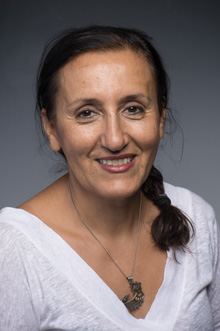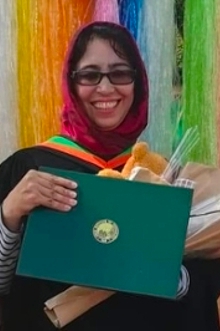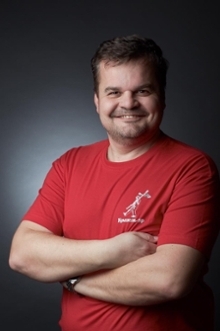Events and Projects
- Upcoming Events
- Event Archive
- Scholar-at-Risk Project
- Otherwise Film Festival
Scholars at Risk is an international network of institutions and individuals whose mission is to protect scholars and promote academic freedom. Temporary academic positions are arranged at member
universities and colleges for scholars facing threats. Scholars are able to continue their work in safety until conditions can improve and they can return home. UCSD has been a member of the SAR network since 2019. For more about SAR, see: https://www.scholarsatrisk.org.
 Dr. Dilsa Deniz, a Kurdish socio-cultural anthropologist, was UC San Diego's first Scholar at Risk, in residence from 2019-2021. Dr. Deniz specializes in anthropology, religion and gender, Middle East studies and Kurdish Alevism. While in residence, she taught courses in Anthropology and Political Science and gave a series of talks on campus and around San Diego. She was a visiting scholar at the Harvard Divinity School.
Dr. Dilsa Deniz, a Kurdish socio-cultural anthropologist, was UC San Diego's first Scholar at Risk, in residence from 2019-2021. Dr. Deniz specializes in anthropology, religion and gender, Middle East studies and Kurdish Alevism. While in residence, she taught courses in Anthropology and Political Science and gave a series of talks on campus and around San Diego. She was a visiting scholar at the Harvard Divinity School.
 Dr. M. Khalil is an Afghan chemist who is in residence from 2021-2023. She is currently working in the Bowman Laboratory at Scripps Institution of Oceanography on biodegradable plastics in the ocean.
Dr. M. Khalil is an Afghan chemist who is in residence from 2021-2023. She is currently working in the Bowman Laboratory at Scripps Institution of Oceanography on biodegradable plastics in the ocean.
 Dr. Ihor Lylo is a Ukrainian historian who focuses on anthropology and cultural exchange. In particular, he studies the cultural significance and influence of Ukrainian and East European cuisine in its historical context. Dr Lylo has published several monographs: Lviv's cuisine (two ed. 2009, 2019) and Ukraine: food and history and more than 25 other articles. He will be in residence in the department of History in 2023.
Dr. Ihor Lylo is a Ukrainian historian who focuses on anthropology and cultural exchange. In particular, he studies the cultural significance and influence of Ukrainian and East European cuisine in its historical context. Dr Lylo has published several monographs: Lviv's cuisine (two ed. 2009, 2019) and Ukraine: food and history and more than 25 other articles. He will be in residence in the department of History in 2023.
A team of professors from across campus worked with the International Institute to enable UC San Diego to join the Scholars at Risk network and sponsor its first Scholar at Risk. Generous funding was provided
by the Executive Vice Chancellor, the Division of Social Sciences, Eleanor Roosevelt College, and the departments of Anthropology and Political Science, as well as the International Institute. We were
also able to procure a $25,000 fellowship from the Scholar Rescue Fund.
We have since raised funding to support other scholars at risk. Our Afghan scholar’s stay was supported in part by a crowdfunding campaign; donations from Jewish Studies and the Benmarhnia lab; the International Institute; and a fellowship from the Scholar Rescue Fund. The majority of her funding came directly from Chancellor Khosla’s office. Her second year is being supported by the Bowman lab at SIO, a second fellowship from SRF, and the Chancellor.
Ukrainian scholar Lylo is being supported entirely by funds from the Chancellor’s office, for which we are enormously grateful.
We hope to bring more scholars at risk to UCSD over the next years. If you are interested in providing funding for a SAR at UCSD, please contact us at the International Institute jguedes@ucsd.edu